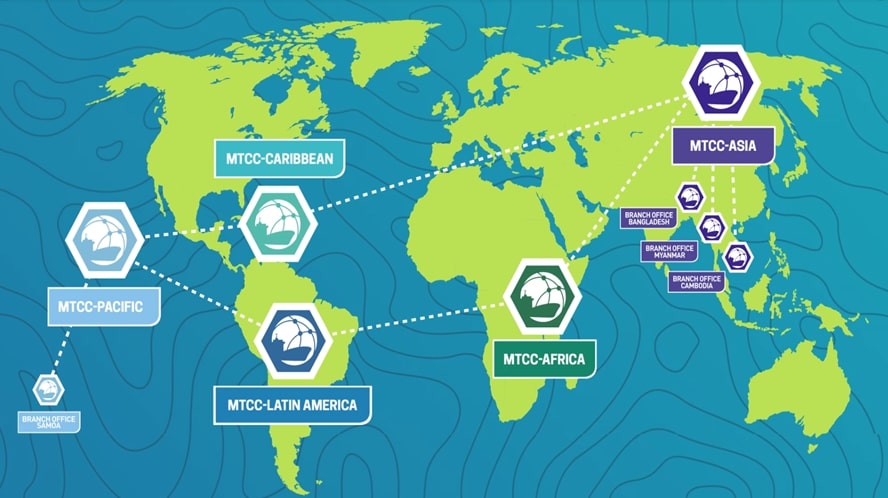EU-funded project supports efforts to reduce CO2 emissions from shipping

date: 27/09/2018
Greenhouse gas (GHG) emissions from maritime transport account for a modest but potentially growing source of total GHG emissions. To reduce emissions, the sector needs better energy efficiency (lower fuel consumption) and to increase uptake of low-carbon technologies.
Funded by the European Union and implemented by the International Maritime Organisation (IMO), the Global Maritime Technologies Cooperation Centres (MTCC) Network (GMN) project unites five MTCCs situated in Africa, Asia, Caribbean, Latin America and the Pacific.
It offers developing countries, in particular least developed countries (LDCs) and small island developing states (SIDS), technical assistance and capacity building to reduce GHG emissions from shipping, and encourages the uptake of energy-efficiency technologies through dissemination of technical information and know-how.
The project lasts four years (2016–2019), but the intention is that MTCCs will become increasingly self-sustaining, both financially and technically, over the long term.

Each MTCC is undertaking two pilot projects, one on low-carbon technologies and operations, and another on fuel consumption data collection and reporting. Positive impacts have already been recorded: in the Pacific region, following the implementation of recommendations from the GMN energy audit pilot project, the Solomon Islands Port Authority reported overall energy savings of 8 % (reducing 15 tonnes of GHG emissions), worth AUD 17 000 per month in 2018.
The project’s capacity-building activities with maritime and port authorities, government and industry bodies and training centres promote development of relevant national policies; ratification, implementation and enforcement of the IMO’s MARPOL Annex VI; compliance with current ship energy efficiency regulations; and best practice, while preparing for likely future regulations.
The MTCCs will deliver 40 capacity-building activities by the end of 2019. By June 2018, they had held 18 events reaching more than 600 participants from nearly 80 countries.
With growing technical capacity and regional networks, the GMN is well placed to support implementation of the ‘Initial IMO Strategy on reduction of GHG emissions from ships’ and help the maritime transport sector steer to a low carbon future.
| MTCC | Host Institutes | Project subject |
|---|---|---|
| Africa | Jomo Kenyatta University of Agriculture and Technology | Establish on-shore power supply at Port of Mombasa (Cold Ironing) |
| Asia | Shanghai Maritime University | Update the ship trim optimization management system |
| Caribbean | The University of Trinidad and Tobago | Capture the current baseline on the use of ship energy efficient technology within the Caribbean region |
| Latin America | International Maritime University of Panama | Capture the current baseline on the use of ship energy efficient technology within the regio |
| Pacific | Pacific Community | Conduct energy audits in maritime ports |
See website: http://gmn.imo.org/
